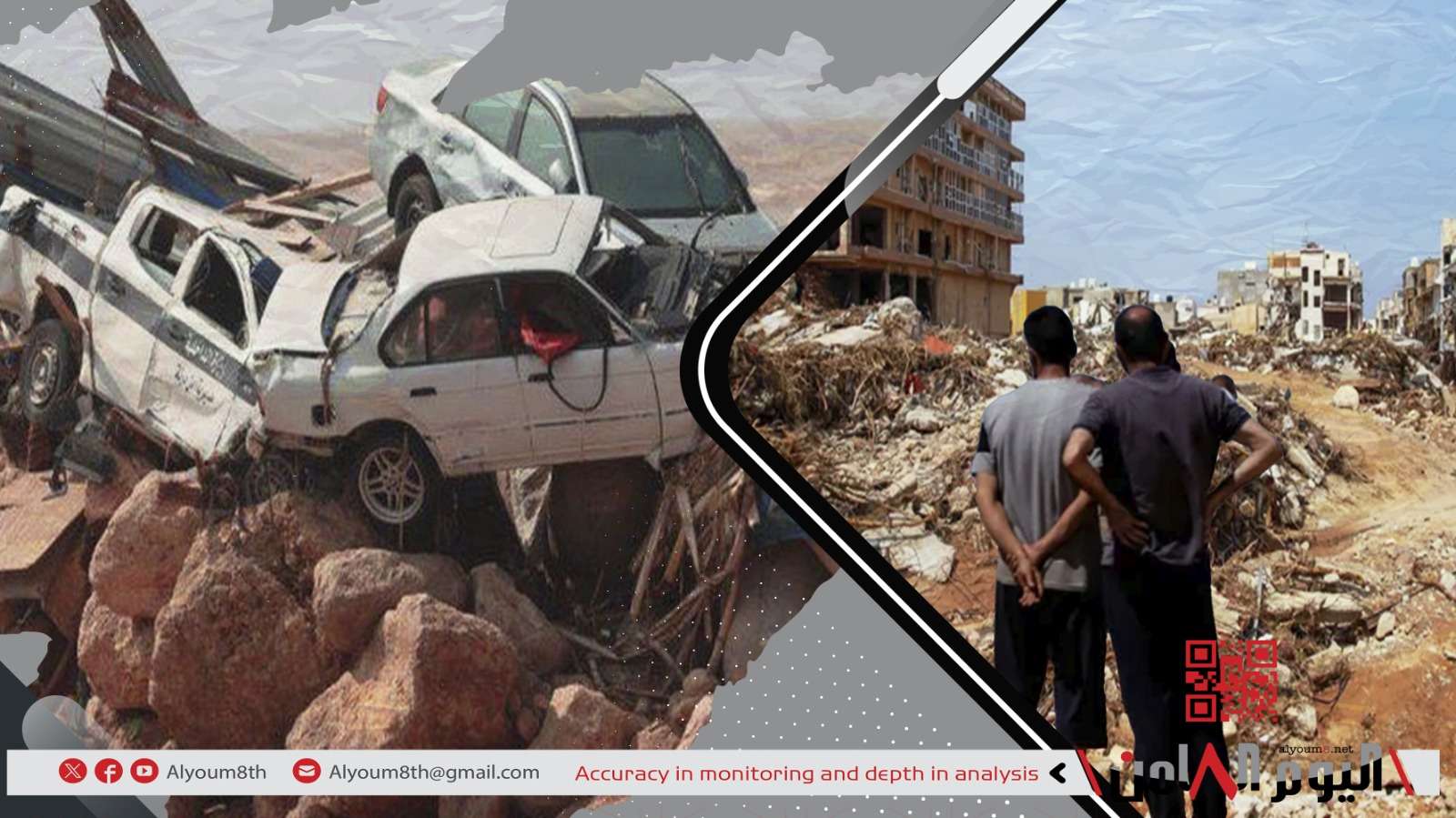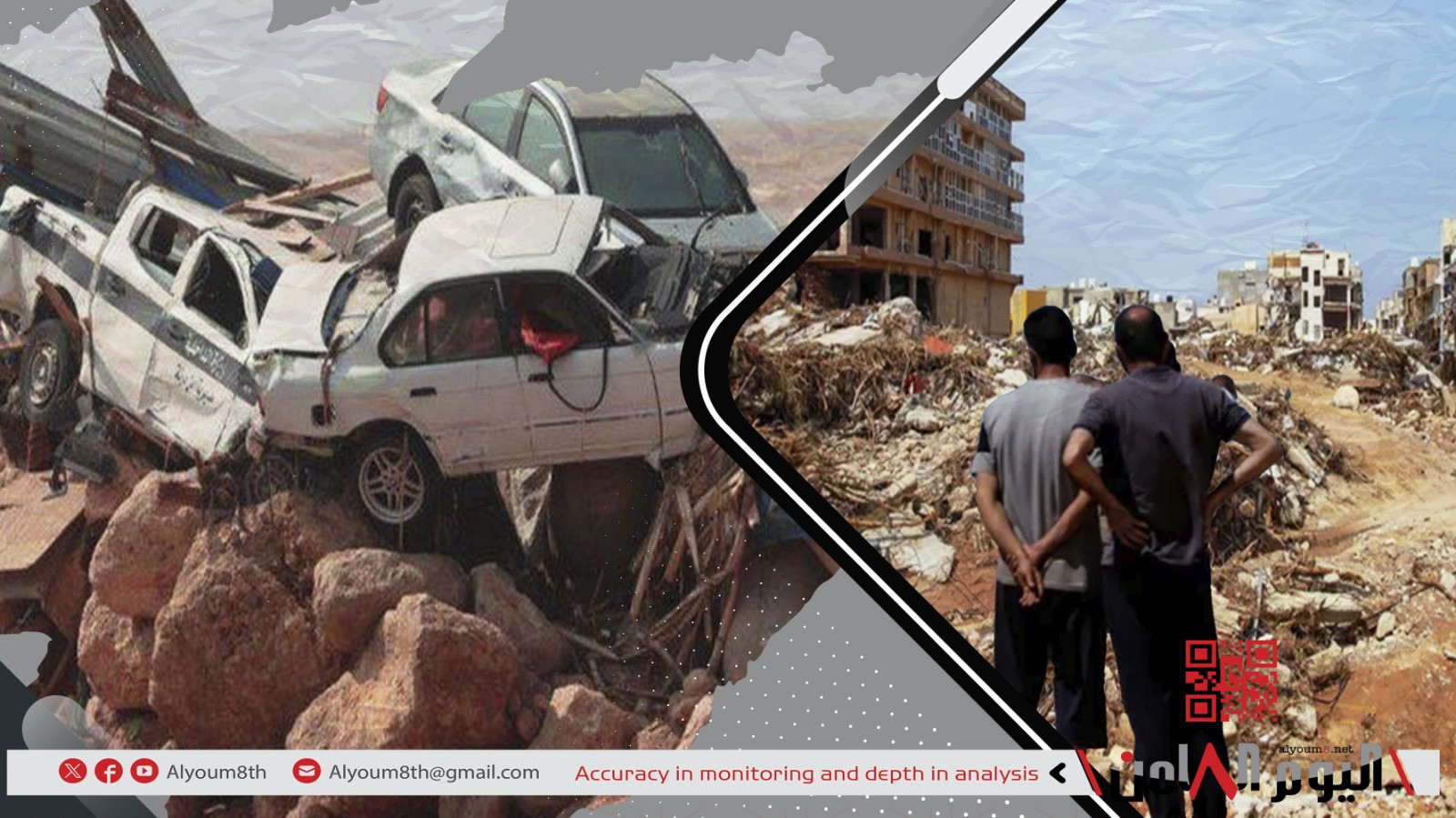"Libya’s catastrophe everyone’s fault"
Oil-rich Libya has been suffering from crises since the overthrow and killing of Muammar Gaddafi
Libya’s feuding factions and fractured polity laid the groundwork for the devastation that followed. Libyans have suffered through years of intermittent fighting and lapsed cease-fires; the years that followed Gaddafi’s fall saw Libyan cities become beholden to a hodgepodge of warring militias and tribes.

Libya’s feuding factions and fractured polity laid the groundwork for the devastation that followed

There’s plenty of blame to go around in the wake of an apocalyptic disaster in eastern Libya. Torrential rains brought by a major Mediterranean storm led to the failure of a series of dams near the coastal city of Derna. The sudden, overwhelming flooding that followed washed whole neighborhoods into the sea, leading to perhaps as many as 20,000 deaths, with thousands still missing in what Libyans are describing as their war-torn nation’s 9/11.
Days later, areas of the city still remain underwater. Thousands of bodies are decomposing in the muddied streets, raising fears over the spread of disease. Tens of thousands of residents have been displaced by the catastrophic floods. “I don’t think I can ever go back,” a survivor in Derna told the BBC. “Those streets were my whole life. We knew every corner of the city. Now it’s gone.”
The wrath of the heavens, local Libyans contend, was matched by the incompetence of those calling the shots on the ground. Oil-rich Libya — beset by crises for more than a decade since a pro-democracy uprising precipitated the violent overthrow and killing of long-ruling dictator Moammar Gaddafi — is divided between two parallel, weak governments in the country’s west, based in the capital Tripoli, and east. The volatility of recent years meant the country’s separate regimes and their feckless officials have left critical infrastructure in a state of neglect.
That included two large dams built a half century ago by a Yugoslav company that sat in the narrow river valley above Derna. The structures had been left in a considerable state of decay and disrepair, to the point that experts last year warned the dams may fail if faced with massive flooding.
“Between 2011 and 2014, there were already concerns about the state of Libyan infrastructure,” Mary Fitzgerald, a Libya expert at the Middle East Institute, told my colleagues. “And then Libya went through a six-year civil conflict from 2014 to 2020 and a lot of infrastructure was damaged during that conflict. In the three years since, you have a situation of rival government, which has yet again complicated political dynamics. Political elites, whether in Tripoli or eastern Libya, haven’t prioritized the huge infrastructural challenges Libya faces.”
Libya’s feuding factions and fractured polity laid the groundwork for the devastation that followed. Libyans have suffered through years of intermittent fighting and lapsed cease-fires; the years that followed Gaddafi’s fall saw Libyan cities become beholden to a hodgepodge of warring militias and tribes. The country is a security official’s nightmare — the conduit for vast, sprawling illicit networks where smugglers move drugs, arms and people. Derna itself was the site of a brief takeover by an Islamic State offshoot in 2014, which was eventually quashed by local forces. The petty squabbles and rivalries of the country’s minor potentates have led to human rights abuses.
But Libya’s unstable status quo is also the result of the intervention of outside actors. That began with the NATO-led intervention in 2011, where Western governments invoked the need to protect civilians from the Gaddafi regime to embark upon a bombing campaign that steadily moved the needle of the conflict in favor of a coalition of rebel groups. The West’s enthusiasm to enter the war was not equaled by its commitments to the peace; Libya receded from the global conversation as brutal post-Arab Spring conflicts in Syria and Yemen exploded.
That didn’t mean that foreign powers weren’t influencing conditions in the country. When the civil war flared a few years later, the rival forces would end up receiving significant support from abroad — Turkey and Qatar backed the U.N.-recognized government in Tripoli, while Egypt, the United Arab Emirates, Russia and, to a certain extent, France found common cause with the fighters in the east, led by controversial Field Marshal Khalifa Hifter.
For each of these countries, the actual fate of Libyans was secondary to their particular vested interests. Qatar and the UAE played out their geopolitical rivalry through a proxy embrace of Libyan Islamists and anti-Islamists. Turkey and Russia used Libya as a testing ground for affiliated mercenary companies. After the surge of 2015 migrant crisis, European governments focused on whatever incentives could be arranged to keep migrants boats from leaving Libya’s long Mediterranean coast.
In the United States, meanwhile, a solipsism took root. Former president Donald Trump decried the toppling of Gaddafi and waved away any future American responsibility for the country. Benghazi, the main seat of power in Libya’s east, became a buzzword in the context of U.S. political theater, the watchword for an earlier era of Republican hysteria over the killing of four U.S. diplomats that launched a marathon series of congressional hearings. All the while, an under-resourced U.N. mission struggled to achieve any meaningful political reconciliation among the warring parties, which were motivated to fight for maximal gains in part because of the continued support of outside backers.
Libya’s calamity now offers the chance for a reset. “After years of treating Libya as a problem to contain and keep at bay, the United States has an opportunity, now, through this disaster, to re-engage directly with the Libyan people,” wrote Ethan Chorin, a former U.S. diplomat in Libya, pointing to the Biden administration’s new pledges of aid. The European Union is also mobilizing a humanitarian response.
Skepticism abounds among embittered Libyans. Libyan social media “is already rife with criticism of European governments,” noted Tarek Megerisi of the European Council on Foreign Relations. “The narrative is that Europeans’ active interventions in Libyan politics helped create the corrupt Libyan politicians being blamed for the disaster, but those same Europeans vanish when they could really help.”
And then there are fears over what may happen with major flows of aid into the country.
“At the societal level, there is a huge outpouring of solidarity and spontaneous support for Derna,” observed Wolfram Lacher, a Berlin-based expert on the country. “But for Libya’s political players … this is all just another episode in the struggle for money and power.”



